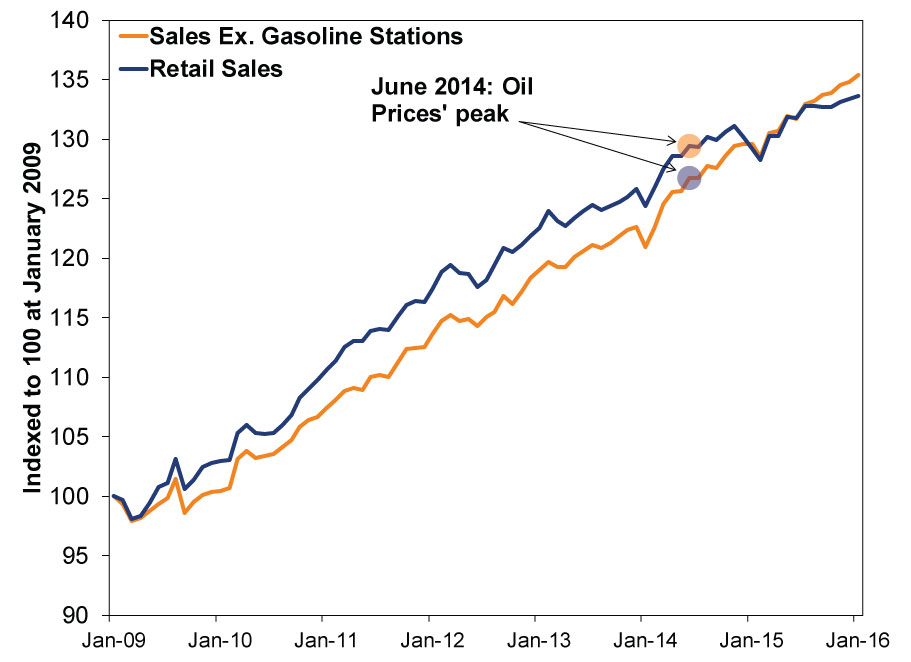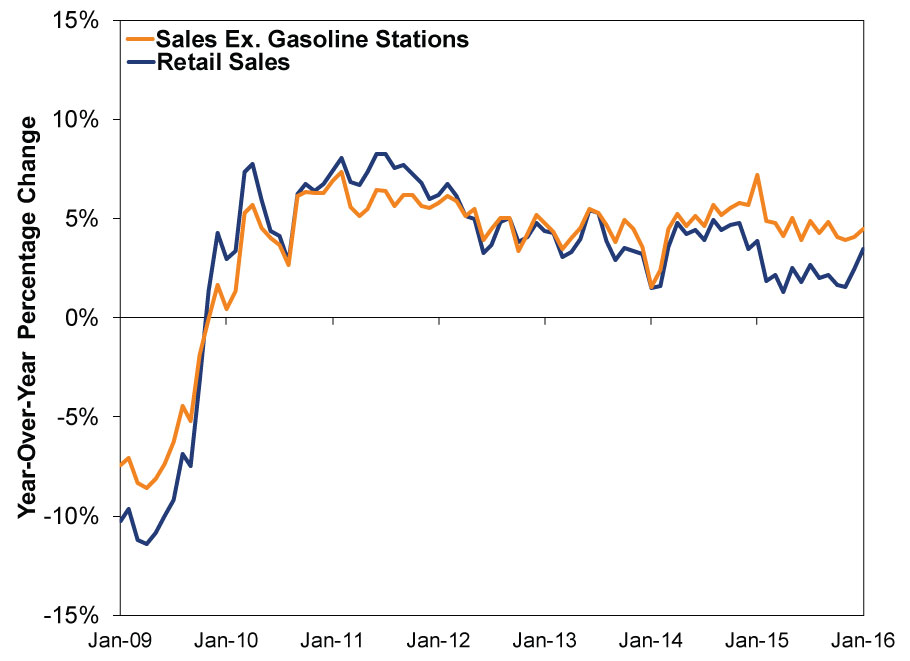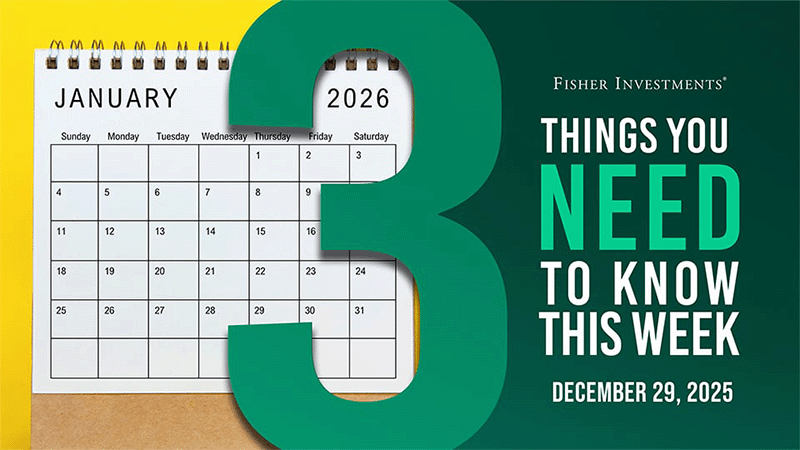Personal Wealth Management / Economics
How Has Oil Impacted Retail Sales?
Two charts reveal steady retail sales growth excluding oil's impact.
Gasoline station sales are dropping. Photo by Martin Divisek - Bloomberg/Getty Images.
Here is a tautology we believe some are overlooking, skewing their view of the US economy: People spend money on oil and oil products.
Yet pundits continue proclaiming falling oil is a "tax cut" for consumers, noting that consumer spending and retail sales should be surging if the economy is on solid footing. The trouble with this logic is it starts from a bad analogy.[i] And, in applying it, all too many folks forget the tautology we opened this article with. If you want to assess the health of consumer spending and retail sales when oil prices are cratering, you must strip out gasoline station spending.
We issue this reminder today as news hit showing US retail sales, a narrow gauge excluding most of consumer spending, popped higher in January.[ii] Headline sales rose +0.2% m/m (+3.4% y/y), beating expectations and accelerating. Many note the breadth of growth and cite it as a positive, and hey, it is. But it also isn't out of keeping with the trend-when you strip out oil.
We've done that for you in Exhibits 1 and 2. Exhibit 1 indexes total retail sales and retail sales excluding gas stations to 100 at January 2009. As you can see, shortly after oil prices began falling-and particularly, when the drop accelerated in late 2014-sales at gasoline stations went from boosting overall sales to reducing them.
Exhibit 1: US Retail Sales, Indexed to 100 at January 2009
Source: US Census Bureau, as of 2/12/2016. January 2009 - January 2016.
Exhibit 2 shows the year-over-year rate of change of both total sales and sales excluding gasoline stations.
Exhibit 2: Year-Over-Year Retail Sales Growth
Source: US Census Bureau, as of 2/12/2016. January 2009 - January 2016.
The gap between headline sales and sales excluding gas stations probably isn't surprising. But the relatively stable growth of sales excluding gas stations is something we rarely see discussed. Since the US recession ended in June 2009, sales growth excluding gasoline has averaged 4.1% y/y.[iii] It was 4.5% y/y in January 2016, and averaged 4.7% in 2015.[iv] Sales, when properly accounting for oil's drop, aren't slowing or weak.
Folks make the same mistake analyzing Chinese and US import growth, UK industrial production and more. If these narrow retail sales data have anything to say to investors, it's this broader lesson: Don't let one widely known factor throw your analysis for a loop.
[i] A tax cut boosts your disposable income. Falling gasoline prices do no such thing, and the fact of the matter is, you might not reallocate savings on cheaper gas to spending on other things. Which is fine! There is nothing economically damaging about saving, investing and/or paying down debt.
[ii] December was also revised up from a dip, and the data now show rising sales for four straight months.
[iii]Source: US Census Bureau, as of 2/12/2016.
[iv] Ibid.
If you would like to contact the editors responsible for this article, please message MarketMinder directly.
*The content contained in this article represents only the opinions and viewpoints of the Fisher Investments editorial staff.
Get a weekly roundup of our market insights
Sign up for our weekly e-mail newsletter.

You Imagine Your Future. We Help You Get There.
Are you ready to start your journey to a better financial future?

Where Might the Market Go Next?
Confidently tackle the market’s ups and downs with independent research and analysis that tells you where we think stocks are headed—and why.








